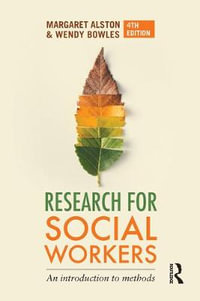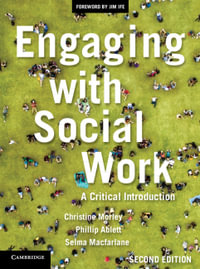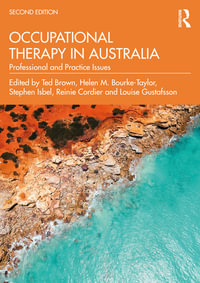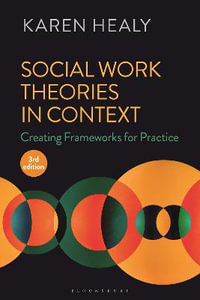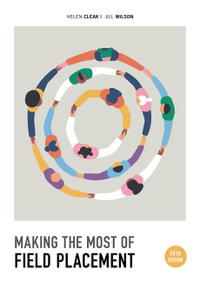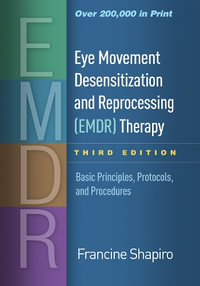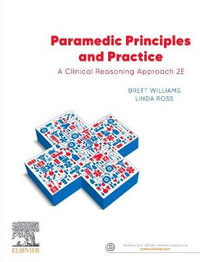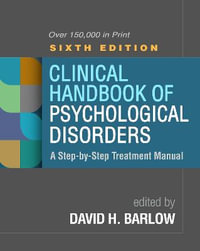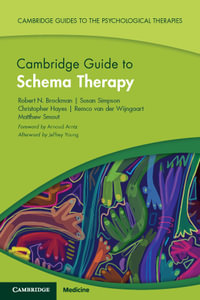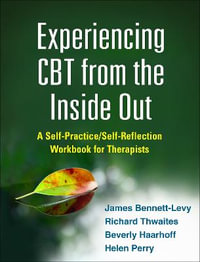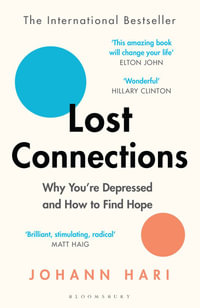
A Guide to Therapeutic Child Care
What You Need to Know to Create a Healing Home
By: Ruth Emond, Laura Steckley, Autumn Roesch-Marsh
Paperback | 15 March 2016 | Edition Number 1
At a Glance
Paperback
Limited Stock Available
RRP $50.99
$48.75
When will this arrive by?
Industry Reviews
Gillian Ruch, Professor of Social Work, University of Sussex
This is a little gem. Honest and engaging, optimistic and realistic, respectful and challenging this accessible and invaluable book thoughtfully explores the everyday experiences and practices that arise in caring for children with traumatic and distressing histories. Adopters, foster carers and practitioners will find the experience of reading it simultaneously intellectually informative and emotionally nurturing.
Kevin Williams, CEO The Fostering Network
This is a really good guide, easy to read and great for dipping in and out of. I particularly liked the Pause for Reflection ideas that help the reader think of examples that they have. Some really good examples of how all children behave at times but particularly children in foster care. I think foster carers will find it a useful tool.
Robbie Gilligan, Professor of Social Work and Social Policy, Trinity College Dublin
This book is filled with a wisdom, compassion and warmth that will inspire carers in their relationships with troubled children. It is a treasure trove of insights about how to understand and respond positively to what lies behind challenging behaviour. The authors draw from a deep well of know-how and experience. They write accessibly - and in a way that rings true on every page. Here is a book that genuinely will help carers to change childrens lives.
Patrick Tomlinson, Professional and Organization Development Specialist
This book provides an excellent resource for introducing foster and residential carers to therapeutic child care. It is thorough and covers all of the central subjects involved in looking after children in out of home care. It would make a very useful tool for supervision and training, where the material could be used as a focus for reflective discussions. Encouraging a reflective approach is the strength of the book. Pause and reflect is a theme throughout, with sections in each chapter focusing on feelings that might arise in the work and practical suggestions on what might be helpful. The authors argue that home and everyday care are the most important things in the childs healing. They have provided carers and those who support them with a great resource in achieving that worthy goal.
Dr. Thom Garfat, Instructor, School of Child and Youth Care, Ryerson University
The greatest compliment I could give to a book is "Damn, I wish I had written this book myself" and with regard to this book, I would like to say "Damn, I wish I had written this book myself". This book is brilliant, in both the UK and North American sense. It makes the complex clear - it makes theory practical and accessible. It speaks directly to those who work with traumatized young people while, at the same time, it speaks to the world of the practitioner. It focuses not only on the world of the traumatized child but also on the experience of everyone who is a part of the context of the encounter between child and carer. This book is an exceptional resource for students, teams and individuals who want to make a difference in the lives of young people living with trauma experiences. It is full of helpful examples, the practice examples bring the knowledge home to the everyday experiences of carers. It emphasizes the importance of both parties to the healing relationship. It is a wonderful resource for those who work with, teach about, or study the effect of trauma on youth. It is written in clear and accessible language. It is, simply, brilliant and I wish I had written this book.
ISBN: 9781849054010
ISBN-10: 1849054010
Published: 15th March 2016
Format: Paperback
Language: English
Number of Pages: 240
Audience: Professional and Scholarly
Publisher: JESSICA KINGSLEY PUBLISHERS
Country of Publication: GB
Edition Number: 1
Dimensions (cm): 21.5 x 14 x 2
Weight (kg): 0.36
Shipping
| Standard Shipping | Express Shipping | |
|---|---|---|
| Metro postcodes: | $9.99 | $14.95 |
| Regional postcodes: | $9.99 | $14.95 |
| Rural postcodes: | $9.99 | $14.95 |
How to return your order
At Booktopia, we offer hassle-free returns in accordance with our returns policy. If you wish to return an item, please get in touch with Booktopia Customer Care.
Additional postage charges may be applicable.
Defective items
If there is a problem with any of the items received for your order then the Booktopia Customer Care team is ready to assist you.
For more info please visit our Help Centre.
You Can Find This Book In
This product is categorised by
- Non-FictionSocial Services & WelfareSocial Welfare & Social ServicesAdoption & Fostering
- Non-FictionFamily & HealthRelationships & Families: Advice & IssuesAdoption & Fostering: Advice & Issues
- Non-FictionSocial Services & WelfareSocial Welfare & Social ServicesSocial Work
- Non-FictionSocial Services & WelfareSocial Welfare & Social ServicesWelfare & Benefit SystemsChild Welfare
- Non-FictionMedicineClinical & Internal MedicinePaediatric Medicine
- BargainsNon-Fiction BargainsFamily & Relationships Bargains
- BargainsNon-Fiction BargainsMedicine Bargains


